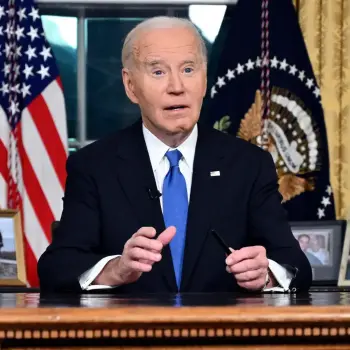The centrists reject the jihadists' fundamentalist reading of the Quran, and seek mainly to follow three basic beliefs. First, there is one God, and he is actually the same monotheistic presence of the Jewish and Christian faith. (The Quran praises Jesus, Moses, and Abraham, and a large percentage of it can be traced to the Bible.) Second, Mohammed is the most recent messenger from God. He is not a "holy" individual, as was Jesus, but rather, a human messenger sent by God. Third, they believe in a Day of Judgment or Resurrection. They also embrace the Five Pillars of Islam: 1) declaring the first two basic beliefs daily; 2) giving alms to the poor; 3) praying five times daily toward Mecca; 4) fasting during the month of Ramadan in solidarity with the poor; and 5) the Haj, or taking a pilgrimage to Mecca.
None of these beliefs conflicts with western democracy. None demands that the believer treat his or her beliefs as superior to the law of the land. Thus, centrists are not opposed to a secular state. Here is the rub, though: they are also not necessarily opposed to an Islamicist state, either, so long as it is not one that follows the absolutist, fundamentalist beliefs of the jihadists. That is to say that there is an opening for an established religion, but it is one that would have to coexist with fair and open elections and, one would hope, respect for the freedom of speech and press.
As Americans, it is very hard to understand what a "free" country looks like when one religion is permitted to occupy a superior position politically. The spectrum of possibilities is huge: England has an established church and a thriving democracy, while Iran has an established religion without any accompanying democracy, with its one-religion, one-clergy, and one-law regime. Where Egypt will fall between the United States or British models and Iran is a very open question. There are certainly elements in Egypt that can push either way.
So where will Egypt find the stability needed in order to plant some seeds of an open and free democracy? That would be the third option—military rule that institutes enough order so that democracy might have some chance. It seems to be the only available option at this moment. The people need time to draft a constitution for the people that can be ratified by the people, to choose leaders who are dedicated to democracy, to demarcate certain rights and freedoms to the people, and to fill judicial benches with neutral arbiters. Those are the minimum requirements for democracy.
If democracy is to have any chance, at a bare minimum, the new constitution must include the fraternal twins of a right to a free press and a right to free speech. Without those two means by which the people can challenge those who wield authority, a power-loving military leader might find power so pleasant that the stability could become an end-in-itself. History has plenty of such examples.
The Americans need to stay away from their tendency to a triumphalist hoisting of their own Constitution as the model for Egypt. We failed the first time we adopted a governing order, and we need to remember that. Our Articles of Confederation was our first constitution and it resulted in abuses of power by state legislatures, an inability to coordinate the states toward national ends (like a common defense), and even border skirmishes between states. It was a failure. But we went back to the drawing board, recrafted the jigsaw puzzle of governance, and lo and behold produced a pretty decent document. It has needed its amendments, but it is not bad. Moreover, it worked because it was crafted to fit the people, the land, and the resources of the United States.
So I would not airlift copies of our Constitution over the Egyptian people for the purpose of telling them the "right" way to govern themselves.
There is one bit of advice, though, that I would commend to them from the Framers of the United States Constitution. When the Framers arrived at the Convention, they no longer wore the rose-colored glasses of those who drafted our Declaration of Independence. They simply did not trust anyone who would hold power, not the people themselves, not a president, not a legislature, and not the judiciary. Nor any one religion.
So they constructed a document that rested on one assumption: never blindly trust anyone who holds power. That is why we have a system of "checks and balances," e.g., the separation of powers between three federal branches. It is also why we have a separation of church and state, and federalism, which is the separation of power between the federal and state government. Any persons drafting a constitution, who remember that they need to prepare for the possibility, no, the likelihood, that those holding power will abuse it, has a decent chance of fitting a durable constitution to the people.





